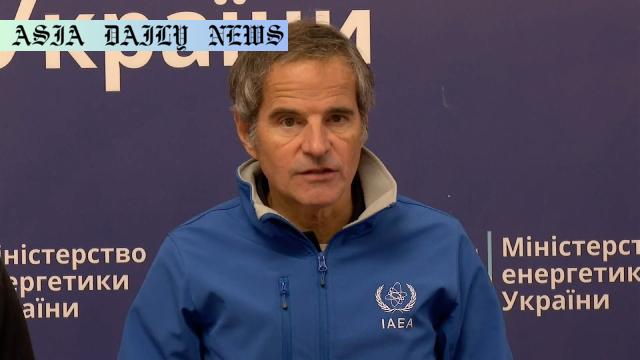Fukushima: IAEA Chief Grossi to Lead International Inspection of Treated Water Release Amid Regional Concerns

IAEA Inspection of Fukushima Treated Water
Rafael Grossi, the Director General of the International Atomic Energy Agency (IAEA), is scheduled to visit Japan between February 18 and 20 to inspect the Fukushima Daiichi nuclear power plant. This trip comes as part of the IAEA’s commitment to ensure the safety and transparency surrounding the release of treated water into the ocean. Given longstanding tensions between Japan and China on this issue, the visit holds significant implications for regional relations and public confidence.
The Necessity of Monitoring and Regional Confidence
The Fukushima Daiichi plant has faced challenges since the 2011 nuclear accident. As part of ongoing measures, water used for cooling molten fuel is treated to remove most radioactive substances, although tritium remains. To address safety concerns, the treated water will undergo further dilution before release, reducing tritium levels to about one-seventh of the World Health Organization’s drinking water guidance level.
International Collaboration in Inspections
This upcoming visit will include collaboration with experts from China, France, and other nations, enhancing the IAEA’s credibility by engaging multiple international stakeholders. Grossi highlighted the importance of this new round of monitoring, noting its potential to provide reassurance to neighboring countries. China’s concerns, in particular, underscore the need for transparent and scientifically validated results.
Meeting with Japan’s Leadership
During his visit, Director General Grossi is also expected to meet with Japanese Prime Minister Ishiba Shigeru. This engagement with Japan’s recently appointed leader emphasizes the high-level cooperation required to address the complex challenges posed by nuclear energy production and its environmental impacts. Grossi expressed honor in meeting Ishiba and reinforced the necessity of global collaboration on nuclear safety standards.
Addressing Environmental Concerns
Efforts to solidify public trust also aim to alleviate environmental worries. The debate over the treated water’s release has persisted, partly due to its symbolic association with the Fukushima nuclear disaster. The IAEA’s active role in inspection and monitoring adds credibility to the initiative, ensuring that safety protocols are followed and promoting environmental responsibility.
Future Implications for Nuclear Energy
This inspection holds broader global implications for nuclear energy policies. By demonstrating accountability and international supervision, the IAEA is setting a precedent for managing such issues in other parts of the world. The Fukushima case serves as a pivotal example for balancing technological advancement with environmental and regional obligations.
Conclusion
The IAEA’s engagement affirms its commitment to global safety standards and collaboration. Through this vital inspection and dialogue with regional governments, Grossi seeks to foster trust and resolve tensions surrounding Fukushima’s treated water release. The visit will not only address current safety concerns but also contribute to long-term frameworks for nuclear energy’s responsible use.
Commentary
The Importance of Transparency in Nuclear Energy
Rafael Grossi’s upcoming visit to Japan comes at a critical juncture. Nuclear energy remains a contentious issue globally, and the Fukushima disaster amplified concerns over its safety. By involving international experts in the inspection process, the IAEA underscores the value of transparency, collaboration, and accountability in managing nuclear energy practices. This initiative is essential not only for Japan but for all nations invested in nuclear technologies.
Strengthening Regional Trust
One of the most commendable aspects of this inspection is its emphasis on regional trust. Relations between China and Japan have historically been strained, and the treated water release has become a focal point for tensions. By inviting Chinese experts and others, the IAEA is taking a critical step towards building diplomacy through science. It demonstrates an international commitment to addressing shared environmental and security concerns.
A Step Towards Environmental Responsibility
The ongoing efforts to address the treated water release highlight the importance of environmental responsibility in nuclear energy policies. Although measures such as dilution and rigorous testing have been implemented, public perception often hinges on visible, independent oversight. The IAEA’s intervention sends a strong message that environmental integrity cannot be compromised in pursuit of advanced energy solutions.
Conclusion
Grossi’s visit to Fukushima and his leadership in addressing these critical concerns are steps in the right direction. Global stakeholders, scientists, and governments must work together to ensure that the balance between technological progress and ecological safeguarding is maintained. The Fukushima inspections serve as a model for tackling complex, transnational challenges with transparency and cooperation.


